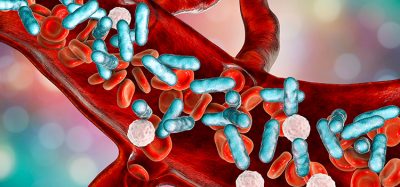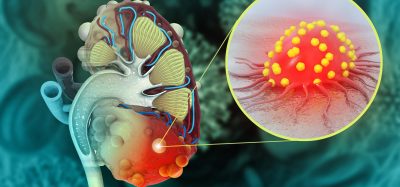Scientists identify single-gene mutations that lead to eczema
Posted: 21 June 2017 | Drug Target Review | No comments yet
NIH-supported research suggests potential treatment strategy following the identification of single-gene mutations that lead to eczema.


Eczema, or atopic dermatitis, is an inflammatory skin condition that typically starts in early childhood and symptoms include swollen, cracked and itchy areas of skin – often behind the knees and elbows.
CARD11 gene mutation leads to eczema
Researchers have identified mutations in a gene called CARD11 that have been shown to lead to eczema. Scientists from the National Institute of Allergy and Infectious Diseases (NIAID) – part of the National Institutes of Health (NIH) – and other institutions discovered the mutations in four unrelated families with severe atopic dermatitis (eczema) and studied the resulting cell-signalling defects that contribute to allergic disease. Their findings also suggest that some of these defects could potentially be corrected by supplementation with the amino acid glutamine.
The scientists analysed the genetic sequences of patients with severe eczema and identified eight individuals from four families with mutations in the CARD11 gene, which provides instructions for production of a cell-signalling protein of the same name.
While some people with these mutations had other health issues, such as infections, others did not, implying that mutations in CARD11 could cause atopic dermatitis without leading to other medical issues often found in severe immune system syndromes.
The scientists next set out to understand how the newly discovered CARD11 mutations contribute to atopic dermatitis. Each of the four families had a distinct mutation that affected a different region of the CARD11 protein, but all the mutations had similar effects on T-cell signalling. By means of cell culture and other laboratory experiments, the researchers determined that the mutations led to defective activation of two cell-signalling pathways, one of which is typically activated in part by glutamine.
Glutamine supplementation could be key
Growing cultured T cells from patients with CARD11 mutations with excess glutamine boosted mTORC1 activation, a key part of one of the affected pathways, suggesting the potential to partially correct the cell-signalling defects that may contribute to atopic dermatitis. The scientists now are planning a study to assess the effect of supplemental glutamine and leucine, another amino acid that activates mTORC1, in people with atopic dermatitis with and without CARD11 mutations.
Related topics
Amino Acids, Analysis, Drug Targets, Genetic Analysis, glutamine
Related conditions
Atopic Dermatitis, Eczema








